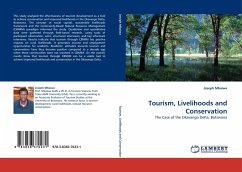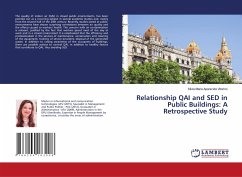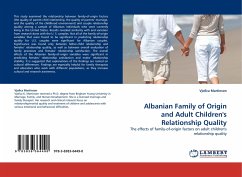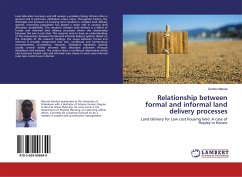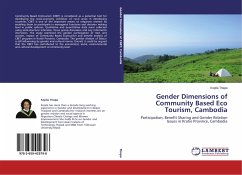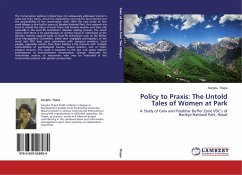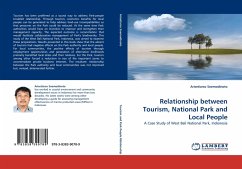
Relationship between Tourism, National Park and Local People
A Case Study of West Bali National Park, Indonesia
Versandkostenfrei!
Versandfertig in 6-10 Tagen
52,99 €
inkl. MwSt.

PAYBACK Punkte
26 °P sammeln!
Tourism has been proffered as a sound way to address Park-people troubled relationship. Through tourism, economic benefits for local people can be generated to help address land-use incompatibilities so that pressures on the Park could be reduced. At the same time Park authorities would have an incentive to improve and strengthen their management capacity. The expected outcome is reconciliation that would facilitate collaborative management of Park's biodiversity. This study of the West Bali National Park, Indonesia, was aimed to examine these propositions. Results presented in this book show ...
Tourism has been proffered as a sound way to address Park-people troubled relationship. Through tourism, economic benefits for local people can be generated to help address land-use incompatibilities so that pressures on the Park could be reduced. At the same time Park authorities would have an incentive to improve and strengthen their management capacity. The expected outcome is reconciliation that would facilitate collaborative management of Park's biodiversity. This study of the West Bali National Park, Indonesia, was aimed to examine these propositions. Results presented in this book show that the advent of tourism had negative effects on the Park authority and local people. For local communities, the positive effects of tourism through employment opportunities and generation of alternative livelihoods primarily benefited local elites and their relatives. For the Park, tourism among other forced a reduction in size of the important zones to accommodate private business interests. The resultant: relationship between the Park authority and local communities was not improved but, instead, deteriorated further.



